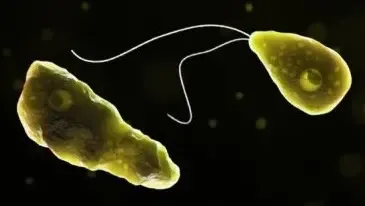What You Should Know About the Brain-Eating Amoeba Infection That Resulted in 19 Deaths in Kerala?

Synopsis
Key Takeaways
- Exposure to contaminated water is a primary cause of infection.
- Naegleria fowleri can lead to amoebic meningoencephalitis.
- Kerala has reported 61 cases and 19 deaths from this infection.
- Early detection significantly improves survival rates.
- Preventive measures include avoiding swimming in polluted water.
New Delhi, Sep 18 (NationPress) Exposure to contaminated water has emerged as a significant factor behind infections from the brain-eating amoeba, which has tragically resulted in the deaths of 19 individuals, including children as young as three years old, in Kerala. Medical professionals are urging the public to refrain from swimming in lakes and other water sources.
Amoebic meningitis is an uncommon yet deadly infection of the central nervous system caused by free-living amoebae, Naegleria fowleri, commonly referred to as the brain-eating amoeba, which is typically found in freshwater bodies, lakes, and rivers.
Kerala has reported 61 confirmed cases of this brain infection, leading to 19 fatalities among patients ranging from a three-month-old infant to a 91-year-old.
Dr. TS Anish, Professor and nodal officer at the Kerala One Health Centre for Nipah Research and Resilience in Kozhikode Government Medical College, stated, “Amoebic meningitis is a rare disease that poses significant diagnostic challenges. It falls under the Acute Encephalitis Syndrome (AES), which is notoriously difficult to identify. Currently, there are no specialized diagnostic tools available globally for this condition.”
The Nipah virus outbreak prompted the establishment of a dedicated diagnostic system aimed at identifying as many AES cases as possible, which has revealed an uptick in amoebic meningitis cases, according to the expert.
He attributed the rise in infections to global warming and climate change. “Thermophilic organisms tend to proliferate as water temperatures increase, compounded by pollution in our water bodies,” Anish explained.
Despite the alarming nature of the disease, he mentioned that “the mortality rate in Kerala is relatively low, one of the lowest reported for amoebic meningitis worldwide.”
“Globally, the death rate for amoebic meningitis caused by Naegleria fowleri hovers around 97 to 98 percent. Other forms of amoebic meningitis can have death rates ranging from 60 to 70 percent, but in Kerala, it is approximately only 20 percent, likely due to early detection,” Anish noted.
Neurologist Dr. Anshu Rohatgi from a prominent city hospital linked the disease's outbreak to “rapid urbanization and exposure to untreated water.”
“The Naegleria fowleri amoeba enters through the nasal passages, travels to the brain, and results in an amoebic meningoencephalitis,” he elaborated.
Health experts affirm that the condition is completely treatable and curable if diagnosed promptly. “Without treatment, this meningoencephalitis has a 100 percent fatality rate. However, in Kerala, due to heightened awareness, more cases are being identified early,” Rohatgi added.
Rohatgi emphasized that an essential step in diagnosing the infection is performing a lumbar puncture or a cerebrospinal fluid (CSF) examination—a procedure involving the insertion of a needle into the spinal canal.
Furthermore, Anish remarked, “The disease is not as rare as it seems; it is simply infrequently diagnosed in many parts of India.”
He referenced a study from the Postgraduate Institute of Medical Education and Research (PGIMER) in Chandigarh conducted between 2014 and 2022, which examined amoebic meningitis in a sample of 156 patients suspected of having meningoencephalitis. Free-living amoebae (FLA) were identified via PCR in 11 of the 156 samples.
Individuals with a history of CSF rhinorrhea, where cerebrospinal fluid leaks into the nasal cavity, are at increased risk for the disease. Additionally, those who have undergone certain surgical procedures involving the brain or skull may also be vulnerable.
Experts have clarified that the infection does not spread from person to person, nor does drinking water containing the amoeba cause it. They advise against swimming in lakes or rivers that may be polluted and recommend avoiding rinsing nostrils with unboiled water.










